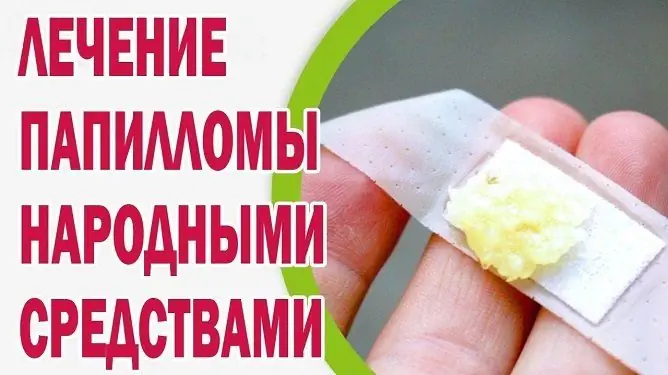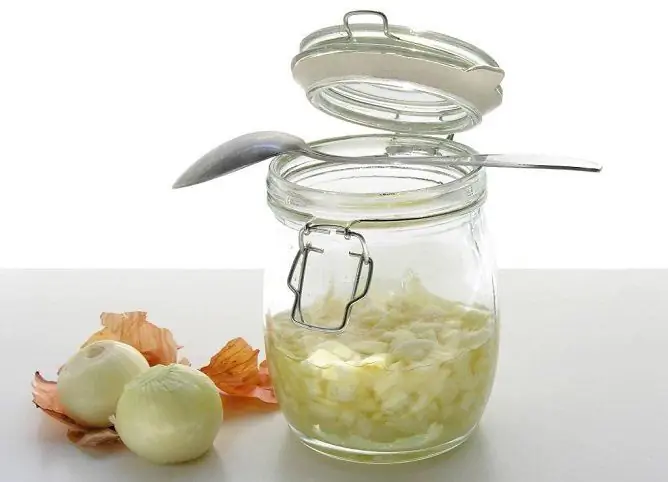- Author Rachel Wainwright wainwright@abchealthonline.com.
- Public 2023-12-15 07:39.
- Last modified 2025-11-02 20:14.
Bad breath

Bad breath (halitosis) is a rather delicate problem for both adults and children.
Causes of bad breath
Bad breath can be caused by rotting (decomposition) of food debris and mucus accumulated between the teeth and on the tongue, as well as various psychological problems.
In 80% of cases, the oral cavity is the source of bad breath. The most unpleasant odor usually comes from grooves in the tongue. Indeed, it is on the back of the tongue that many dead, exfoliated bacteria and epithelial cells accumulate. About one hundred bacteria adhere to one epithelial cell of the tongue. Bacteria absorb sulfur-containing components of plaque and food. Under their influence, the molecules of the amino acids cysteine and methionine break down into methyl mercaptan and hydrogen sulfide. Both of these compounds have a fetid odor.
The cause of bad breath can also be oral dysbiosis, saliva congestion, dry mouth, an imbalance in the acid-base balance of the oral cavity with a high protein content in the diet, an increased number of necrotic or dead cells, dry mouth.
Saliva cleans the mouth and teeth, destroys pathogens. Dry mouth is the most common cause of bad breath. Dry mouth occurs with a decrease in salivation (stress, excitement, infectious diseases, diabetes mellitus), with dehydration.
The cause of bad breath can be an exacerbation of the disease, which has become chronic. Sour taste and smell can cause diseases of the esophagus, gastritis with high acidity. In diseases of the stomach, an unpleasant odor from the oral cavity can be associated with a Helicobacterial infection. Bitter taste and unpleasant odor is a manifestation of liver and gallbladder diseases. The smell of feces from the oral cavity can occur with motor neuroses or intestinal obstruction, with dysbiosis. Acetone odor with a sweetish aftertaste can cause pancreatic disease. The smell of urine from the mouth is indicative of kidney disease. Inflammatory periodontal and gum disease is another common cause of bad breath.

An unpleasant odor from the oral cavity can also be associated with malignant neoplasms in the oral cavity, with inflammatory processes in the nasopharynx. Oral cancer causes bleeding, destruction, and tissue death.
Treating bad breath
The following guidelines are very important for treating bad breath:
- Brush your teeth with a soft bristled toothbrush three times a day to remove food particles left in the mouth and stuck in the teeth;
- clean the interdental spaces with dental floss;
- clean the back of the tongue daily with a soft bristled brush;
- to stimulate salivation, eat fresh fruits and vegetables regularly, adhere to a diet;
- to eliminate xerostomia (dry mouth), rinse your mouth with warm water;
- visit your dentist regularly.
To clean the oral cavity at home, you can prepare decoctions of sage, mint, strawberry, chamomile or oak bark. To do this, a tablespoon of any raw material should be poured with a glass of hot water. After cooling, strain the solution and use it after meals for rinsing. An irrigator provides a sufficiently effective cleaning of the oral cavity. The irrigator massages the surface of the gums to stimulate blood circulation and cleanse the spaces between the teeth.
How to quickly remove bad breath?
There are a huge number of effective remedies that help to quickly get rid of an unpleasant odor from the oral cavity: aerosol fresheners, rinses, lollipops, chewing gum. But if at the right time nothing was at hand, then you can try drinking a cup of very strong tea, and then rinse your mouth with water. Carrots and apples will help to quickly remove bad breath. Garlic or onion aroma can be neutralized with celery or parsley root. You can quickly get rid of bad taste and odor from the mouth by chewing on a coffee bean. To activate the production of saliva, you should include oatmeal porridge in your diet. If you have a dry mouth, you should drink as often as possible. A small amount of liquid will freshen the breath and remove the unpleasant aftertaste.
If you cannot brush your teeth with a toothbrush, you can rub your gums, tongue and teeth with your finger. In this way, you can massage the gums and get rid of the unpleasant odor. You can use walnut pulp to rub your gums. Rubbing the gums with walnut pulp provides the oral cavity with essential vitamins and freshens breath with a pleasant nutty flavor.
YouTube video related to the article:
The information is generalized and provided for informational purposes only. At the first sign of illness, see your doctor. Self-medication is hazardous to health!






